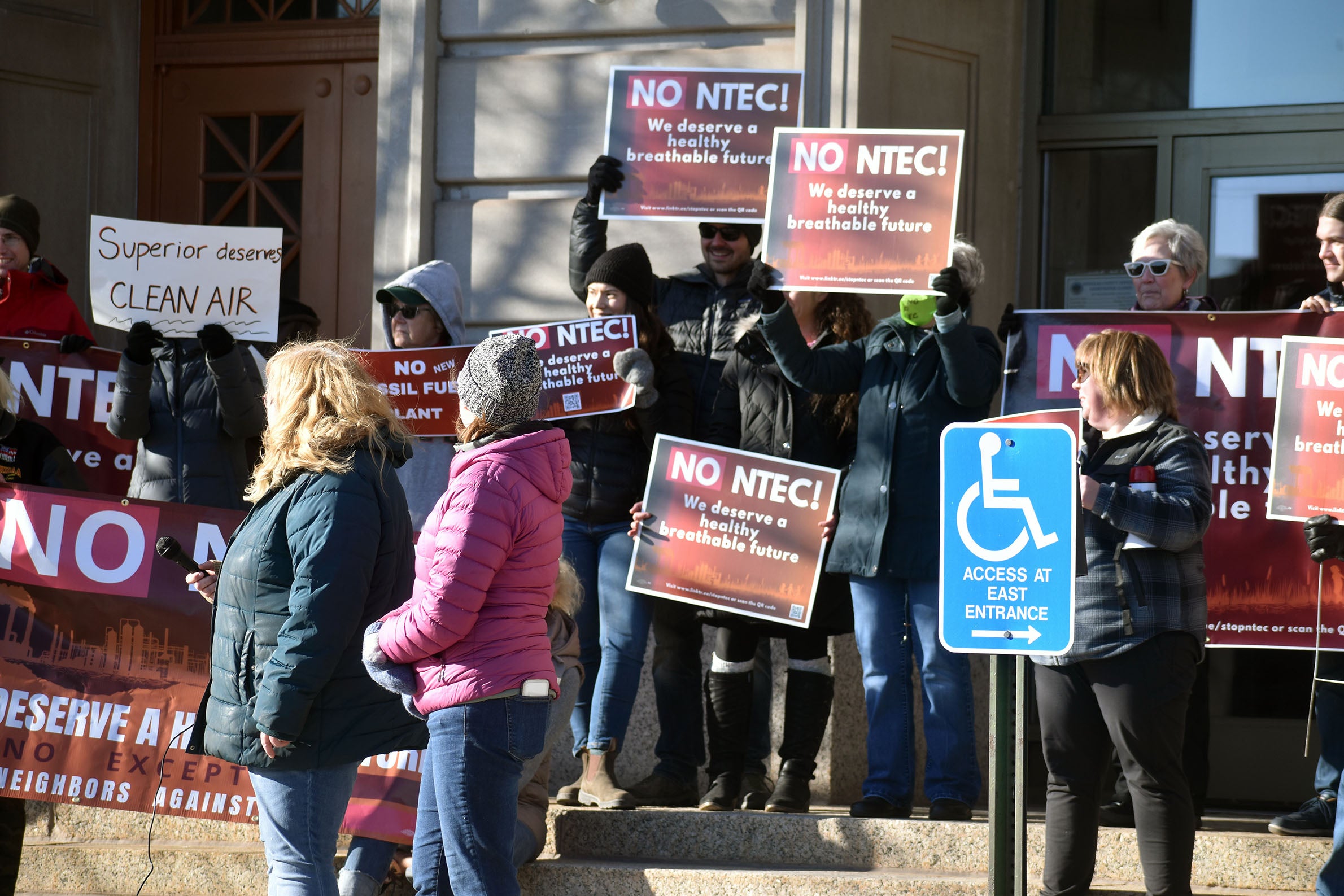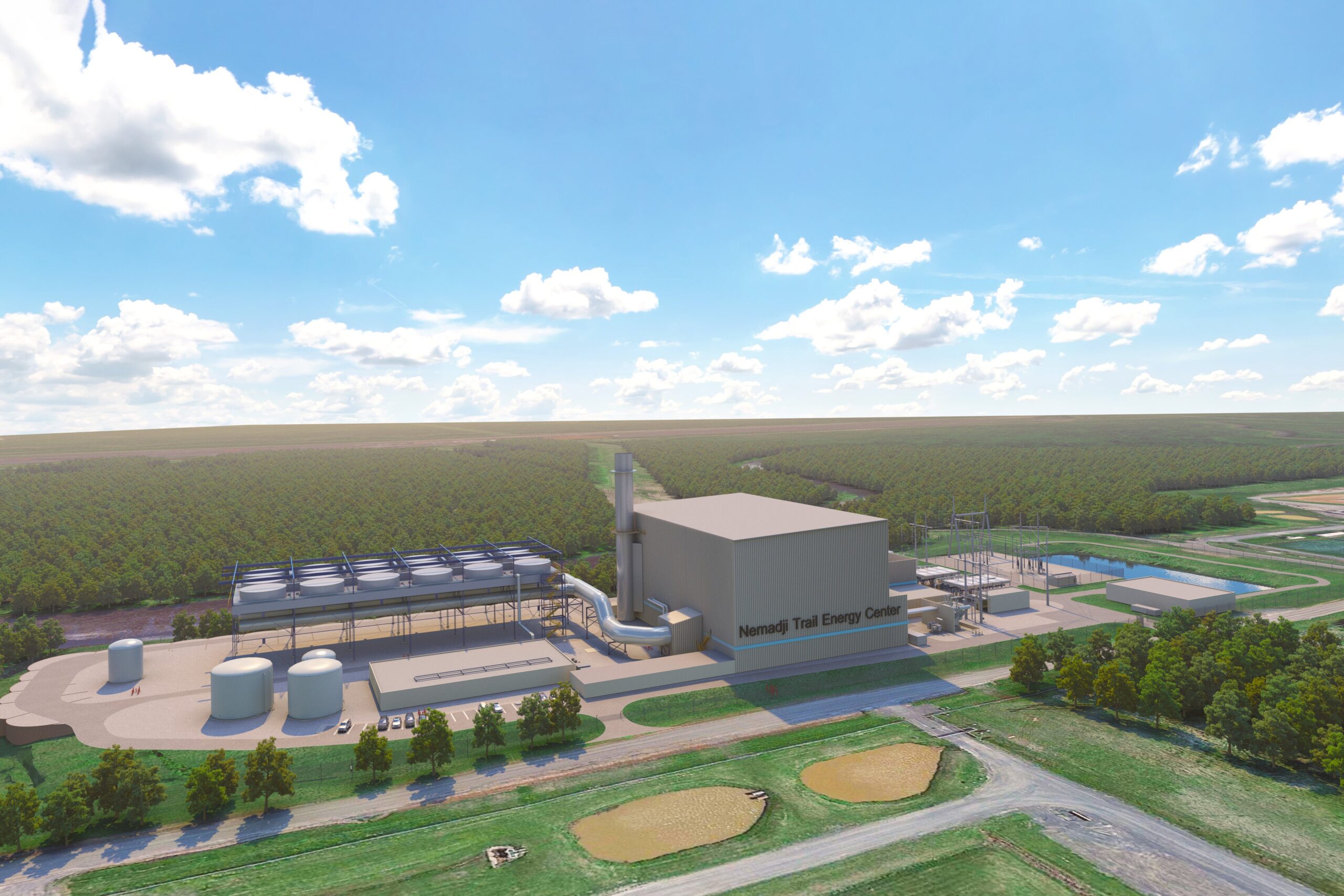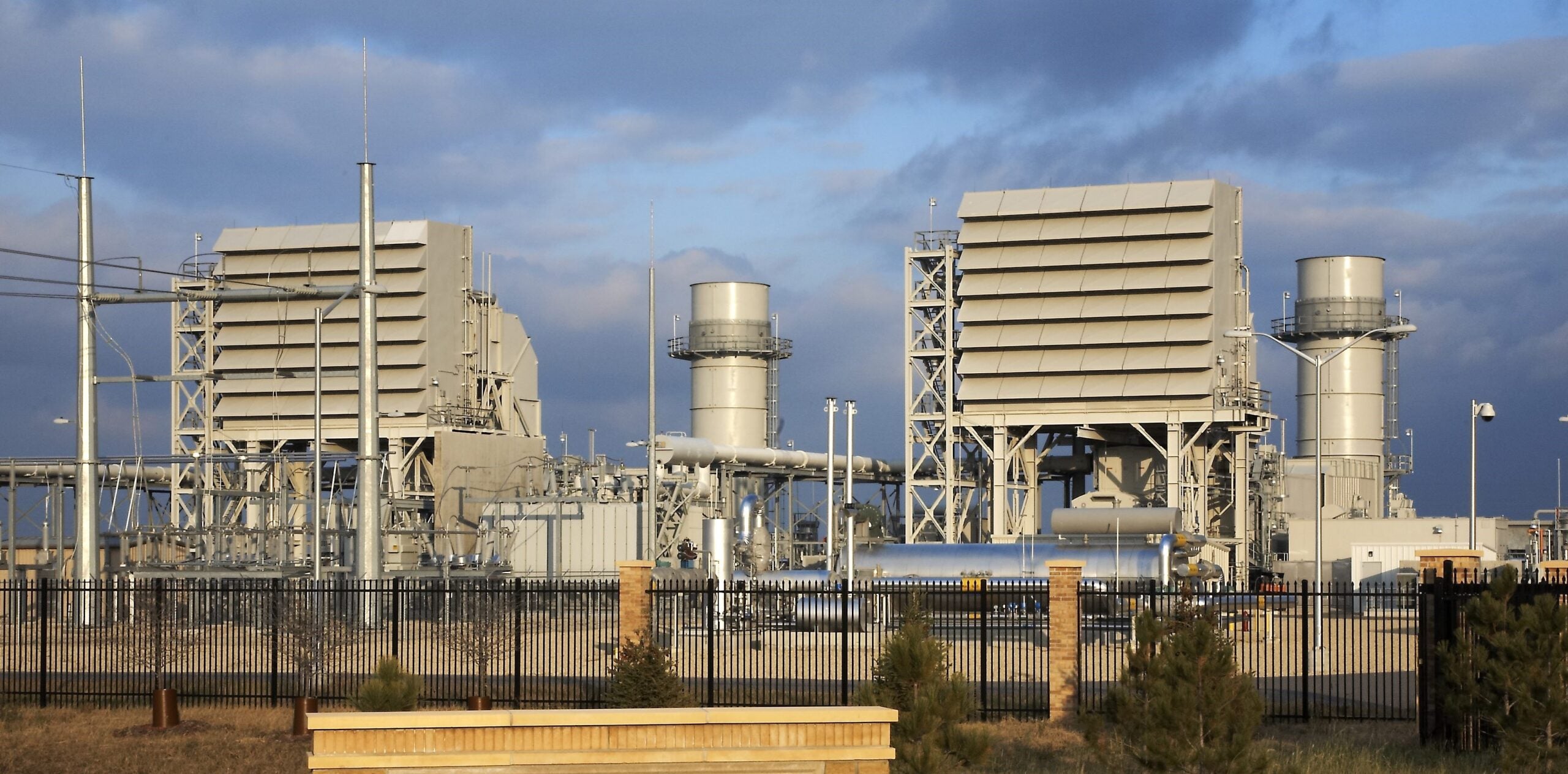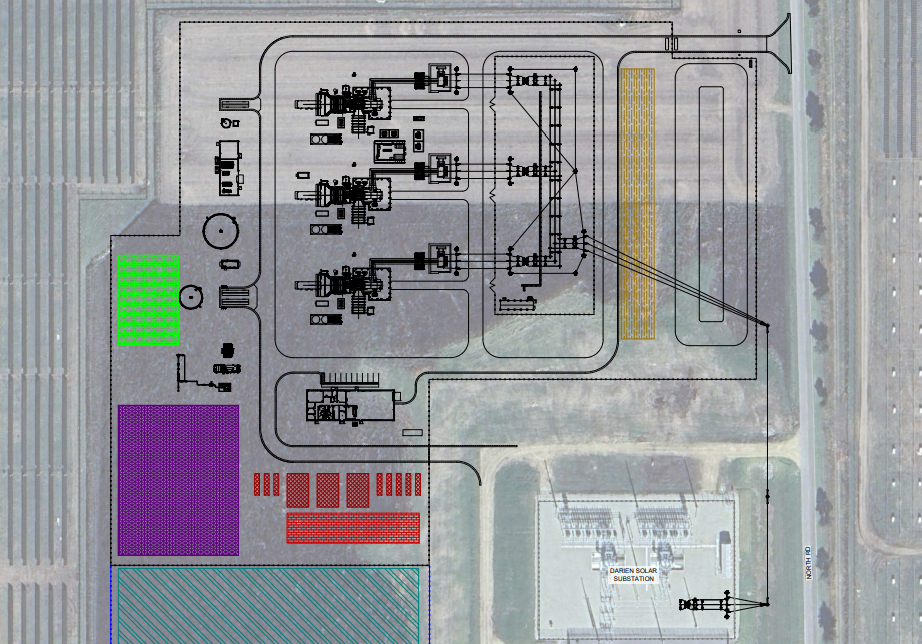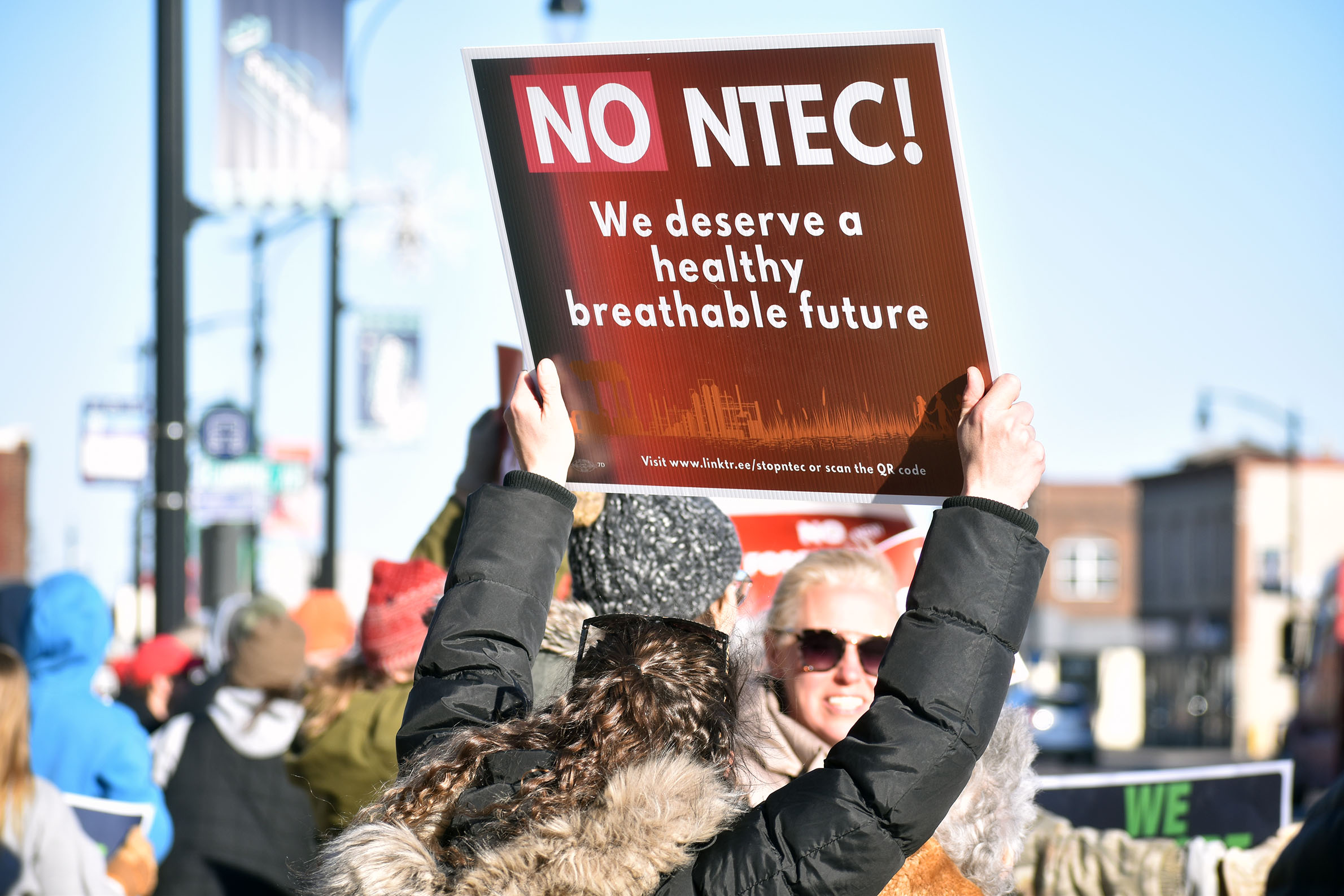The Nemadji Trail Energy Center is a project many mayors would welcome to their city: A billion-dollar natural gas plant backers say would bring 350 construction jobs and 25 permanent jobs, as well as $1 million in annual tax revenue.
But Superior Mayor Jim Paine is among those who oppose the cooperative venture of Minnesota Power, LaCrosse-based Dairyland Power Cooperative and Basin Electric Power Cooperative of North Dakota. He says there is a growing number of officials and citizens hesitant to the project — chief among their concerns are public health and environmental issues.
The two sides are embroiled in legal battles. That dispute includes rulings favoring the project by state and federal regulatory agencies and courts, and challenges to those decisions by opponents that have delayed construction goals. Most recently, it’s over the power of the city to restrict the plant’s construction via zoning regulations.
News with a little more humanity
WPR’s “Wisconsin Today” newsletter keeps you connected to the state you love without feeling overwhelmed. No paywall. No agenda. No corporate filter.
Lynn Wohlwend of Neighbors Against NTEC and Mayor Paine spoke with WPR’s “Morning Edition” about their concerns.
This transcript has been edited for brevity and clarity.
Robin Washington: Mayor Paine, wouldn’t a mayor typically be for a project like this?
Jim Paine: The fact is that billion dollars is not an investment in our community. It’s an extraction from our community. The investment is made by the companies’ shareholders — they will reap the benefit. That billion dollars is coming from ratepayers. It’s not being given to the people of Superior; it’s being taken from them. It will raise their utility rates to pay for this plant.
RW: What would make the project acceptable? Can you address the environmental concerns?
Lynn Wohlwend: There is no acceptable gas plant project right now. It’s absolutely reckless in the face of climate change. You can think of these gas plants as like little mini-methane bombs. Just 0.2 percent of methane released makes these gas plants as bad as coal for climate change.
This plant would be in my neighborhood. It’s a concern for me, my family, the health of my neighbors and community. But what happens here in Superior is going to affect people around the world. The companies propose gas as some kind of transition away from renewables, when it’s simply another reinvestment in fossil fuels.
RW: What would be your reaction if they build it elsewhere? What would you say to the communities who would experience the ills that you’re projecting?
JP: First of all, they probably can’t build it somewhere else. The Biden administration is enacting more regulatory rules that make it hard to build these obsolete fossil fuel plants. This is 20th century technology and we’re a quarter of the way into the 21st century.
My first responsibility is to the people of Superior. We have lived through multiple heavy industry accidents. We daily live with some of the most polluted air in the country. Why should we have to accept it?
RW: How do you respond to your neighbors who are in favor of the plant? There are people for whom jobs are the most important consideration.
JP: It’s true that there are some citizens in Superior that still support a project like this, but the fact is those numbers have been plummeting. When this project was first proposed, I supported it. Almost every elected official in Superior and Douglas County supported it. The vast majority of that support evaporated once folks realized this plant does not enable renewables, it is not clean, it is not safe, it does not bring the number of jobs that they’re claiming it does. There is almost nothing positive about this plan.
LW: There was a lot of misinformation put up by the (Wisconsin) Public Utilities Commission telling people that this was some kind of clean energy project, that it was just going to give off steam, that there was no increase of pollution and that this was essentially getting us further along in our climate change goals.
We went door to door, we did tabling sessions at the public library and went out talking to people. Once people really started to understand where we were coming from, it wasn’t uncommon for them to be like, “You know what? I agree with you.”
RW: So what are the next steps? Can the city just say we don’t want it? What other avenues are out there?
JP: The city has said, “No, we don’t want it. You are not allowed to build a methane plant on the banks of the major river. Full stop.” I think if the companies want to live up to their promises, to be a good neighbor, they need to respect our decision.
Editor’s note: This story has been updated to reflect that rulings by Wisconsin and Minnesota regulatory agencies and state courts favored the project.
If you have an idea about something in northern Wisconsin you think we should talk about on “Morning Edition,” send it to us at northern@wpr.org.
Wisconsin Public Radio, © Copyright 2025, Board of Regents of the University of Wisconsin System and Wisconsin Educational Communications Board.

